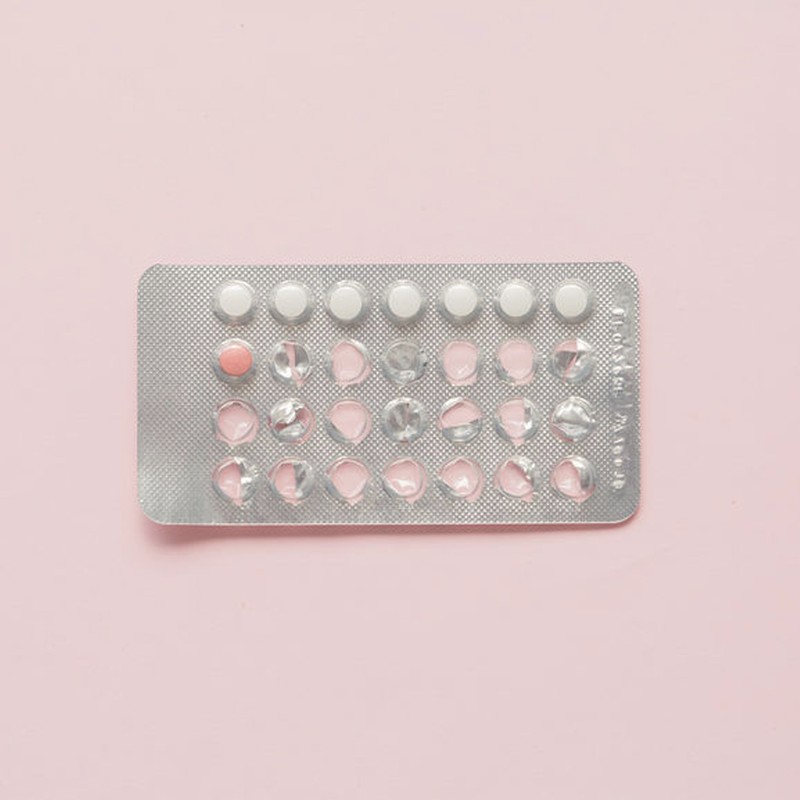Is It OK To Skip Your Period On The Pill?
So, is it safe to skip your period using the contraceptive pill?
Yes, it is. The synthetic hormones contained within each birth control tablet only last in our systems for up to 24 hours, so you don’t need to worry about an ‘accumulation of hormones’ in your body.
Skipping a period is often recommended by doctors for conditions such as endometriosis, where a reduction in the number of monthly bleeds helps to control and improve symptoms. While, in theory, you can take the pill back-to-back for as long as you like, in these situations, women would usually be advised to take the pill back-to-back for around three months.
Are there any risks?
Whilst there’s no greater risk in reducing the number of periods you have, the general and more traditional advice is to do only this for two to three months, because of the risks associated with using the pill itself – the main one being that it can cause blood clots in the legs or lungs, which can be serious and sometimes fatal (12 cases in 10,000 women). This is mainly due to the hormone oestrogen; of which a synthetic version is an ingredient in the combined pill.
Many factors can affect your likelihood of developing blood clots when taking the pill. The risk is greater in women taking the pill compared to the general population (just two cases in 10,000 women), but this risk has not been shown to be greater if taking the pill back-to-back. It does increase, however, for women taking the combined pill (oestrogen and progestogen) – but the level of risk varies depending on the type of progestogen used in the pill – and for those in their first year of using the pill. However, the danger of blood clots remains low overall.
It should be said that women who are at a greater risk of blood clots – including those who are overweight, smokers, over the age of 35, have personally had a clot before, or have had an immediate relative who’ve had a clot – should consider alternative forms of contraception, such as a hormone coil (Mirena), on non-hormonal options such as the copper coil or condoms.
What happens to your period when you take your pill without the break?
People tend to think that the lining of the womb continues to grow unchecked with continued use of the pill without a break – this isn’t true. Oestrogen in the pill is used to stop maturation of the ovarian follicles and stop the release of an egg during ovulation.
The progestogen in the pill has two effects: it thickens the cervical mucous, making it difficult for sperm to enter the uterus and fertilise an egg, whilst also thinning the lining of the womb, making it difficult for a fertilised egg to implant itself. If the lining is thin, there is less to shed.
What happens if you start to bleed whilst continuously taking your pill?
Taking the pill back-to-back may cause irregular bleeding called ‘breakthrough bleeding’. Mainly inconvenient and usually settling after a few months, it might mask other conditions, such as an unintended pregnancy, which may require further investigation by a doctor. Pregnancy can be usually be excluded by taking a pregnancy test, but if symptoms persist you should see your GP, where further tests may be needed.
It should also be noted that some women taking the pill back-to-back may experience other PMS symptoms such as bloating or cramping without the bleed.
Does skipping your period affect your fertility?
Theres’ no evidence that continued use of the pill has any negative impact on your fertility, and it doesn’t significantly delay the return of normal menstrual cycles.
If there’s no medical reason for having a bleed on the pill, why have we all been doing it for so long?
New research continues to show there isn’t a greater risk of side effects with continuous use, so doctors and family planning practitioners now feel more comfortable giving this advice – whereas before, many didn’t.
But it’s also a personal choice; some women just prefer to have a monthly bleed.
For more information, visit ThePortlandHospital.com
DISCLAIMER: We endeavour to always credit the correct original source of every image we use. If you think a credit may be incorrect, please contact us at info@sheerluxe.com.


